I always mention to my students…‘I want you to be a magician. Not musician, a magician.’ What does a magician do? It does something that’s sleight of hand and you see it. It’s the same thing with music. You have to be a magician so that the listener says, ‘Oh, my God. This is amazing!’
Itzhak Perlman was born in Tel Aviv in what was then British-ruled Palestine. His parents, Chaim and Shoshana, had immigrated from Poland before World War II. All three became Israeli citizens when the State of Israel was proclaimed in 1948. From the very beginning, young Itzhak was fascinated by the classical music he heard on the radio, singing along and imitating the sounds of the instruments, particularly the violin. Given a miniature violin at age three, he taught himself to play melodies immediately, but was dissatisfied with the sound and clambered for a proper instrument.
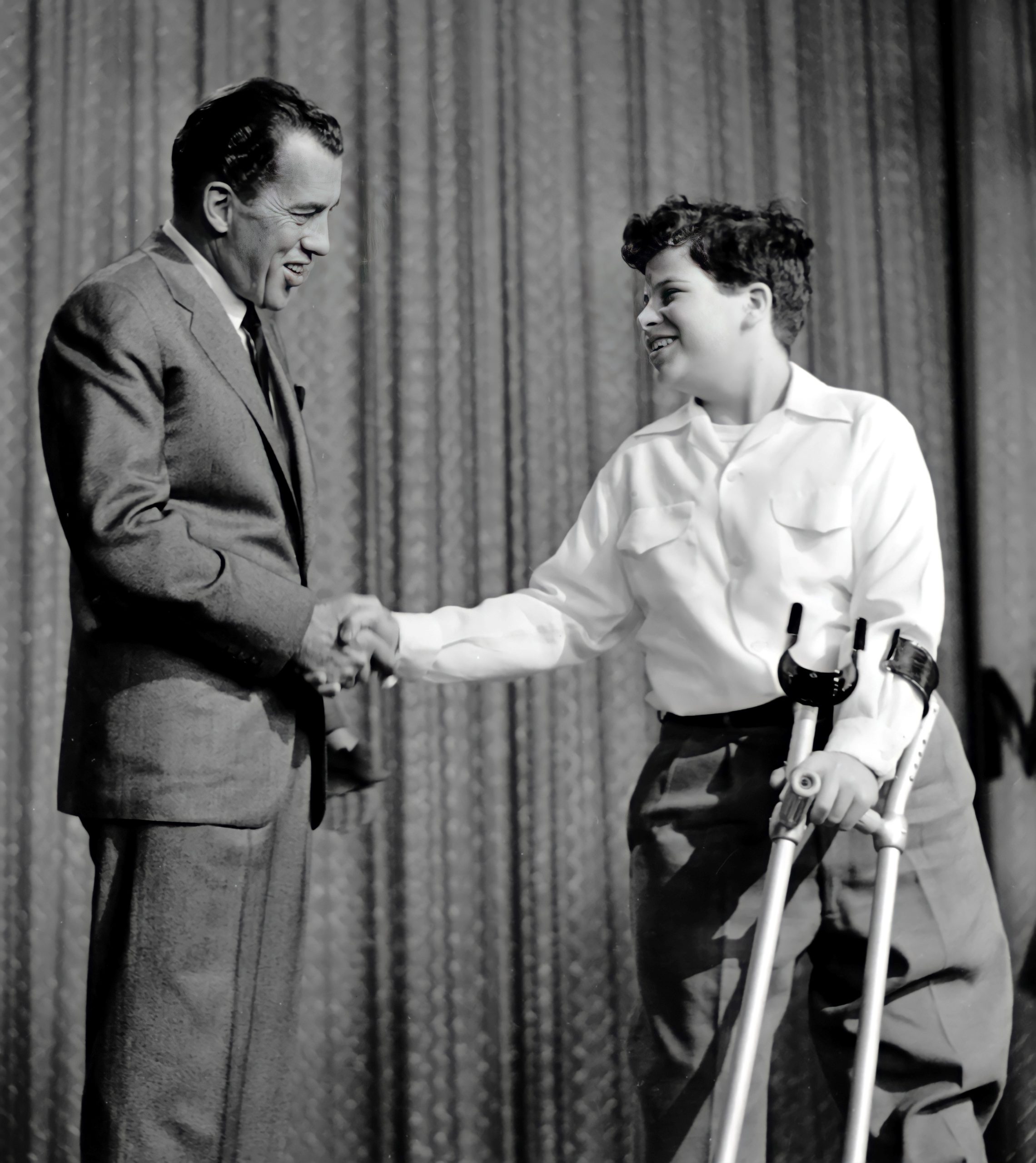
At age four, Itzhak was stricken with polio. He learned to walk with crutches and continued to play violin in a seated position. At age five, he began formal studies with the Russian-trained teacher Rivka Goldgart at Shulamit Conservatory. Practicing three hours a day, he progressed quickly, giving his first public recital at age ten. Perlman was already dreaming of a career as a soloist, but the traditions of classical music performance call for the solo violinist to stand, and many doubted that a seated violinist would be accepted on the concert stage. At 13, he sought opportunities to study abroad, and his eyes turned to the United States.
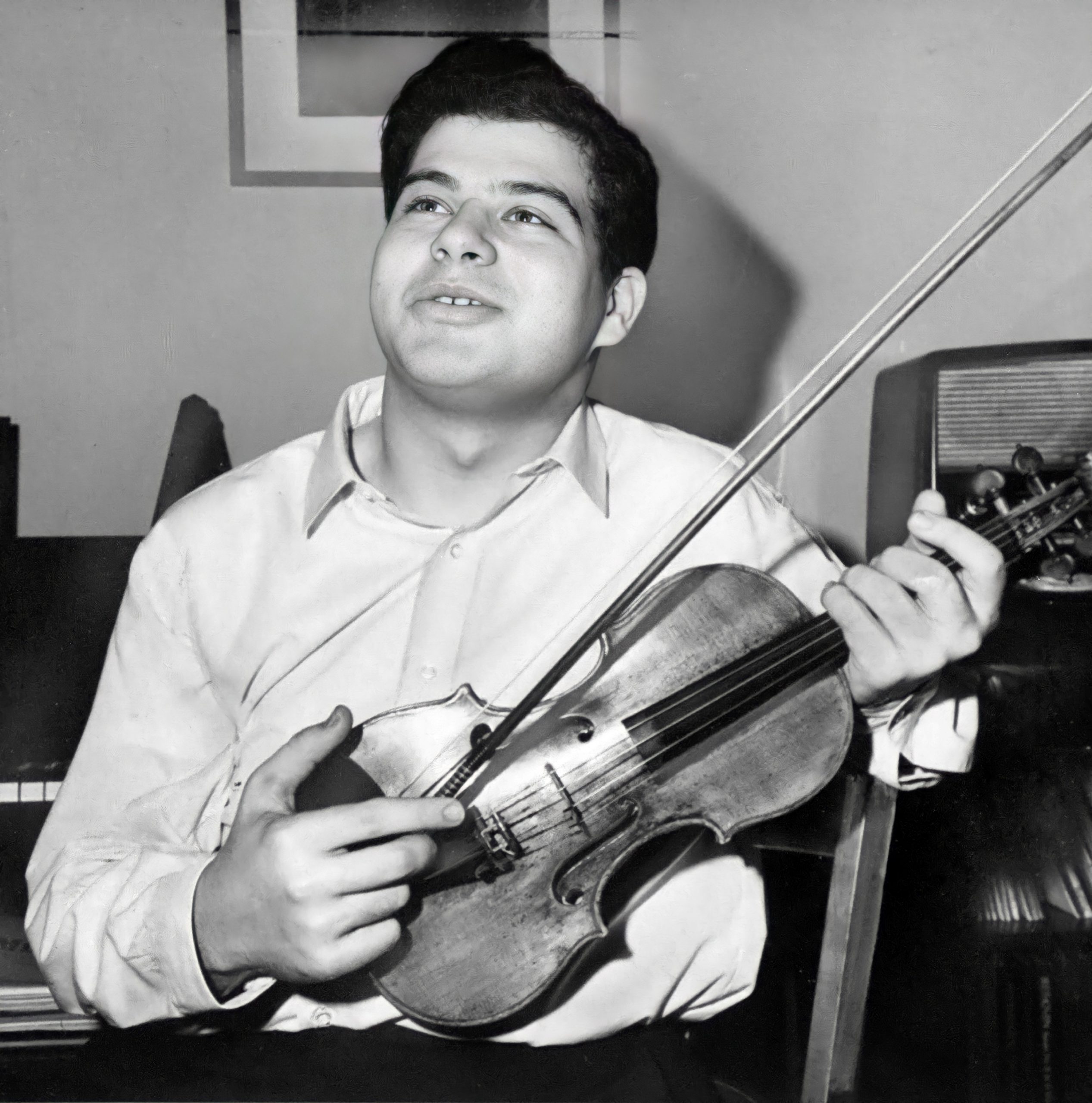
Opportunity appeared when the American newspaper columnist and television host Ed Sullivan planned to assemble an entire evening of Israeli artists for his popular Sunday night program, a beloved institution in the United States. The 13-year-old violinist passed a series of auditions, dazzling Sullivan’s scouts, and finally Sullivan himself. Itzhak Perlman arrived in New York with his mother in 1958. He made two appearances on The Ed Sullivan Show and enrolled at the Juilliard School to study with the eminent teacher Ivan Galamian.
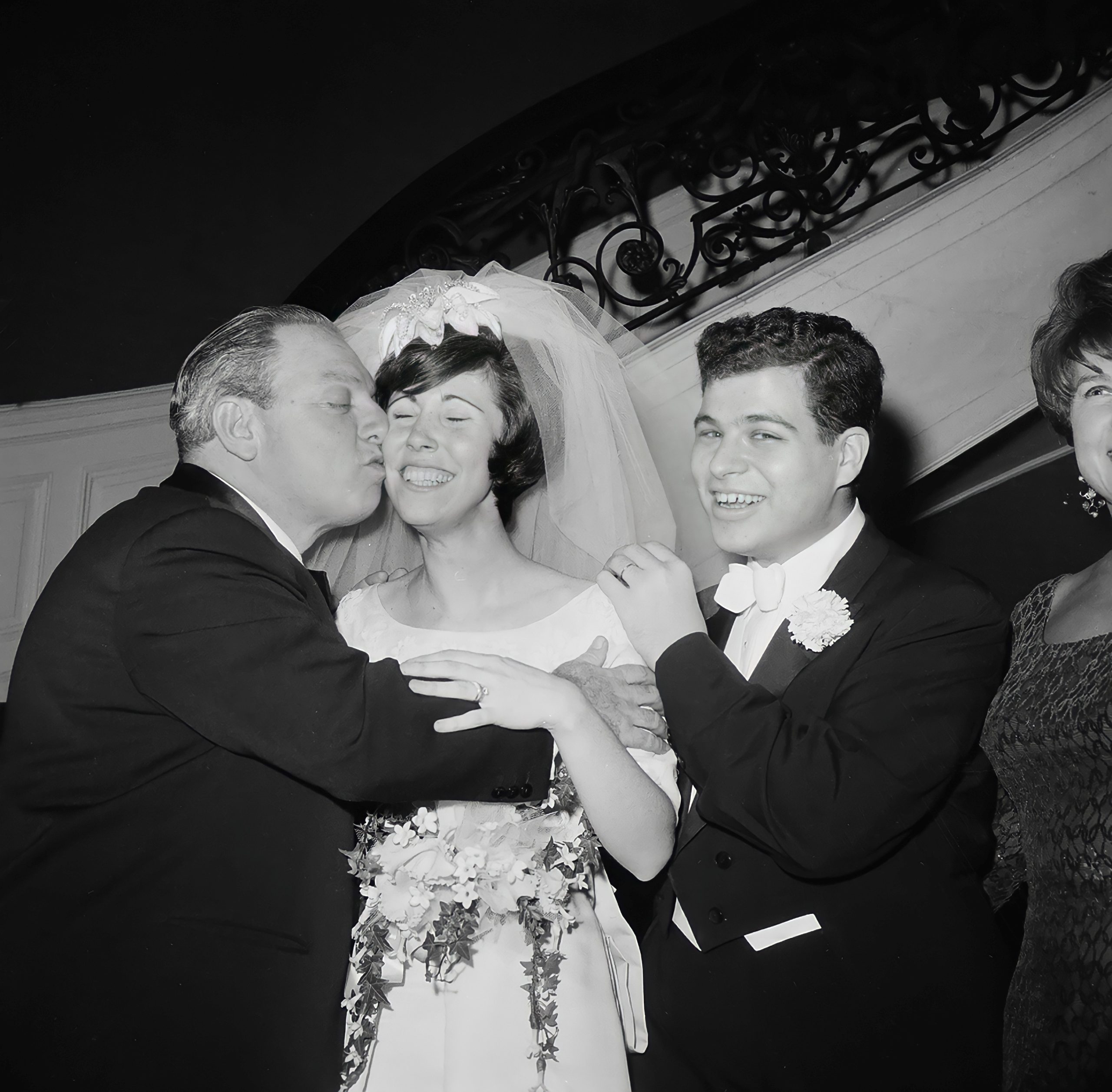
Speaking little English, and living with his mother in cramped hotel rooms, young Itzhak found his first months in the new country to be difficult. He missed his father and his schoolmates, but he discovered a supportive influence in Galamian’s assistant, Dorothy DeLay. DeLay was struck by the boy’s precocious technique and encouraged him to develop his individuality as an artist. Rather than dictating details of technique and interpretation as Goldgart had done, DeLay urged the young violinist to listen to himself critically and find his own way to express the feelings a given piece evoked in him.

Chaim Perlman eventually joined his wife and son in New York, and the Perlman family created a stable home in the new country. Given Itzhak’s demanding schedule of practice and music study, his parents chose to school him at home while his artistry grew impressively under DeLay and Galamian’s guidance at Juilliard. At a summer music camp, Itzhak met a fellow violin student, Toby Friedlander. In later years, they would recall that, after hearing him play for the first time, she asked him to marry her. Marriage would have to wait, but the two teenagers had formed a bond that would last for many decades to come.
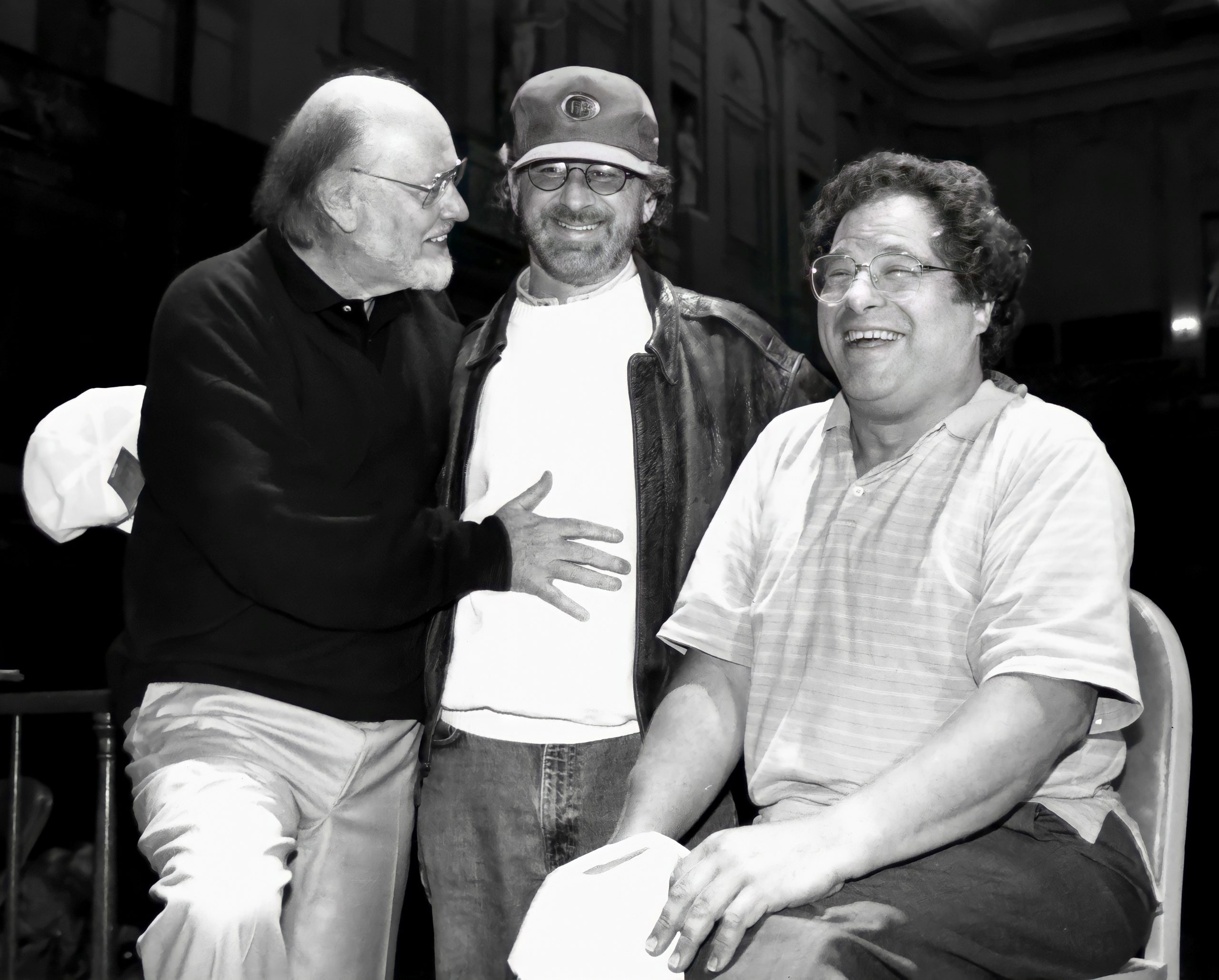
In 1963, Itzhak Perlman made his debut at Carnegie Hall and word spread quickly that a new musical phenomenon had arrived on the scene — a violinist with fire and passion in the grand tradition, like Perlman’s hero, Jascha Heifetz. The following year, Perlman won the Leventritt Competition, the nation’s most prestigious contest for young pianists and violinists. His formal studies complete, the 19-year-old wonder embarked on an extensive schedule of recording and performance, beginning with two return appearances on The Ed Sullivan Show, alongside popular entertainers and musicians such as The Rolling Stones. Perlman began his recording career with a series of critically acclaimed LPs, including his 1967 recording with the Boston Symphony of violin concertos by Prokofiev and Sibelius. That same year, Itzhak Perlman and Toby Friedlander were married.
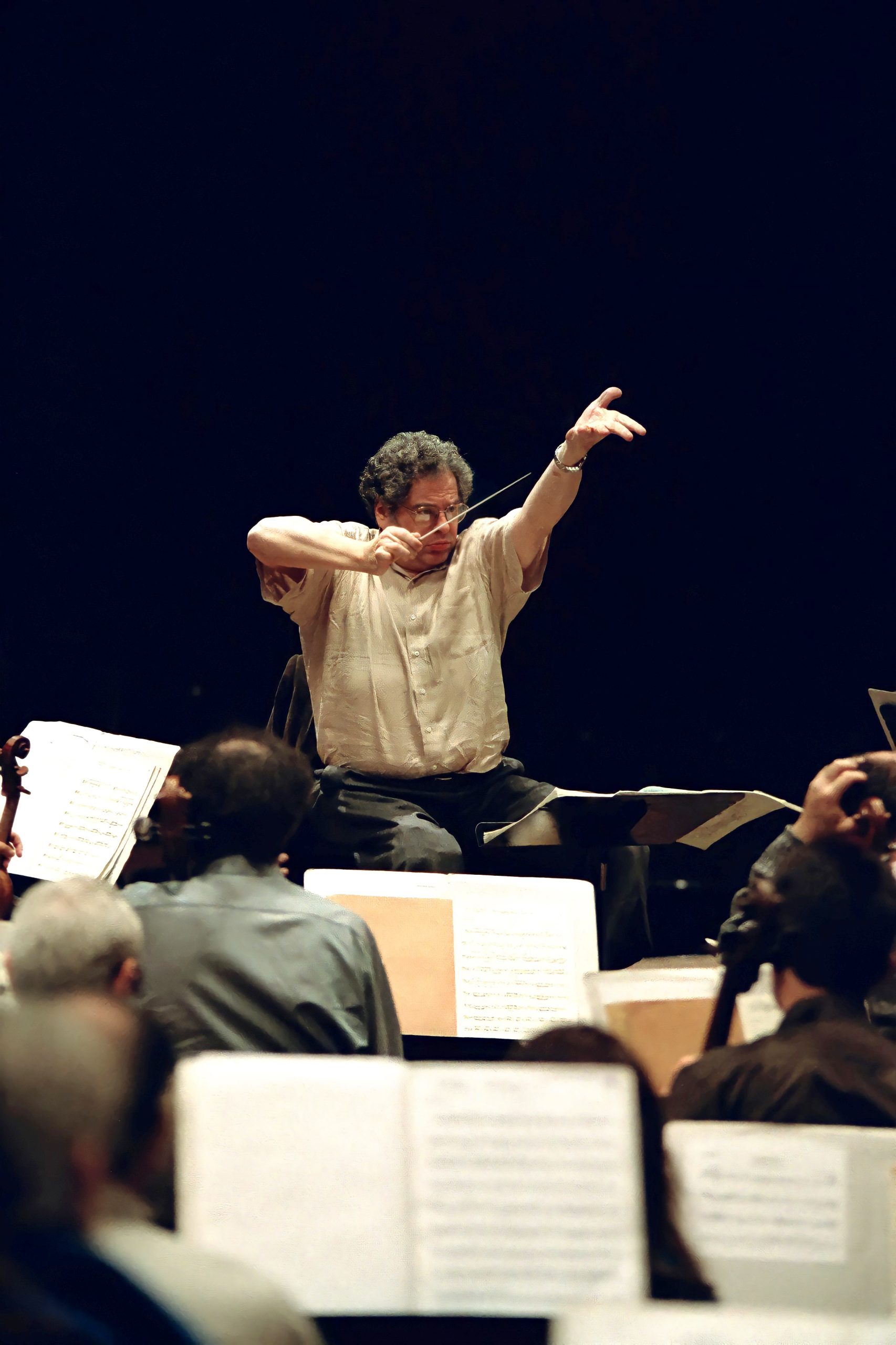
Over the following decades, Itzhak Perlman recorded and performed with the world’s leading orchestras and conductors. His recordings of the great violin concertos of Beethoven, Brahms and Tchaikovsky are essential to any library or collection of classical music recordings. In addition to extraordinary sales for a classical artist, Perlman’s recordings have won recognition from the recording industry, with 15 Grammy Awards, beginning with a 1977 Grammy for his performance of Vivaldi’s The Four Seasons. He won multiple Grammy Awards each year, in 1978, 1980, 1981, 1987 and 1990 — three in 1980 alone for recordings of chamber music and the violin concertos of Brahms and Stravinsky.
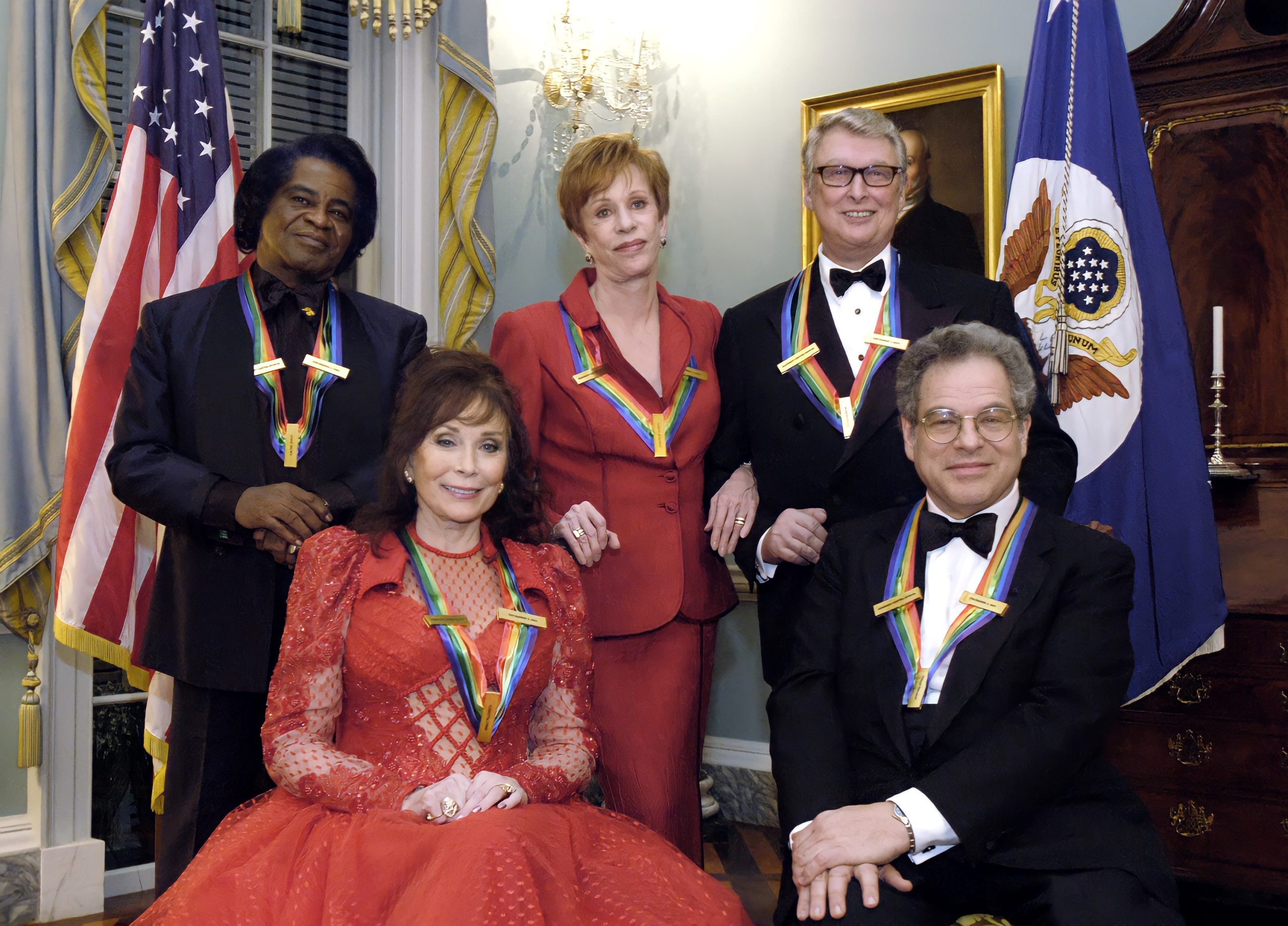
Itzhak Perlman has brought his passion for music to even larger audience through television, from his earliest appearances on The Ed Sullivan Show to guest appearances on everything from Sesame Street to The Tonight Show, as well as hosting numerous specials of his own. In 1986, Perlman participated in the New York Philharmonic’s tribute to the 100th anniversary of the Statue of Liberty, broadcast live on network television. The same year, Itzhak Perlman was awarded the Medal of Liberty by President Ronald Reagan.
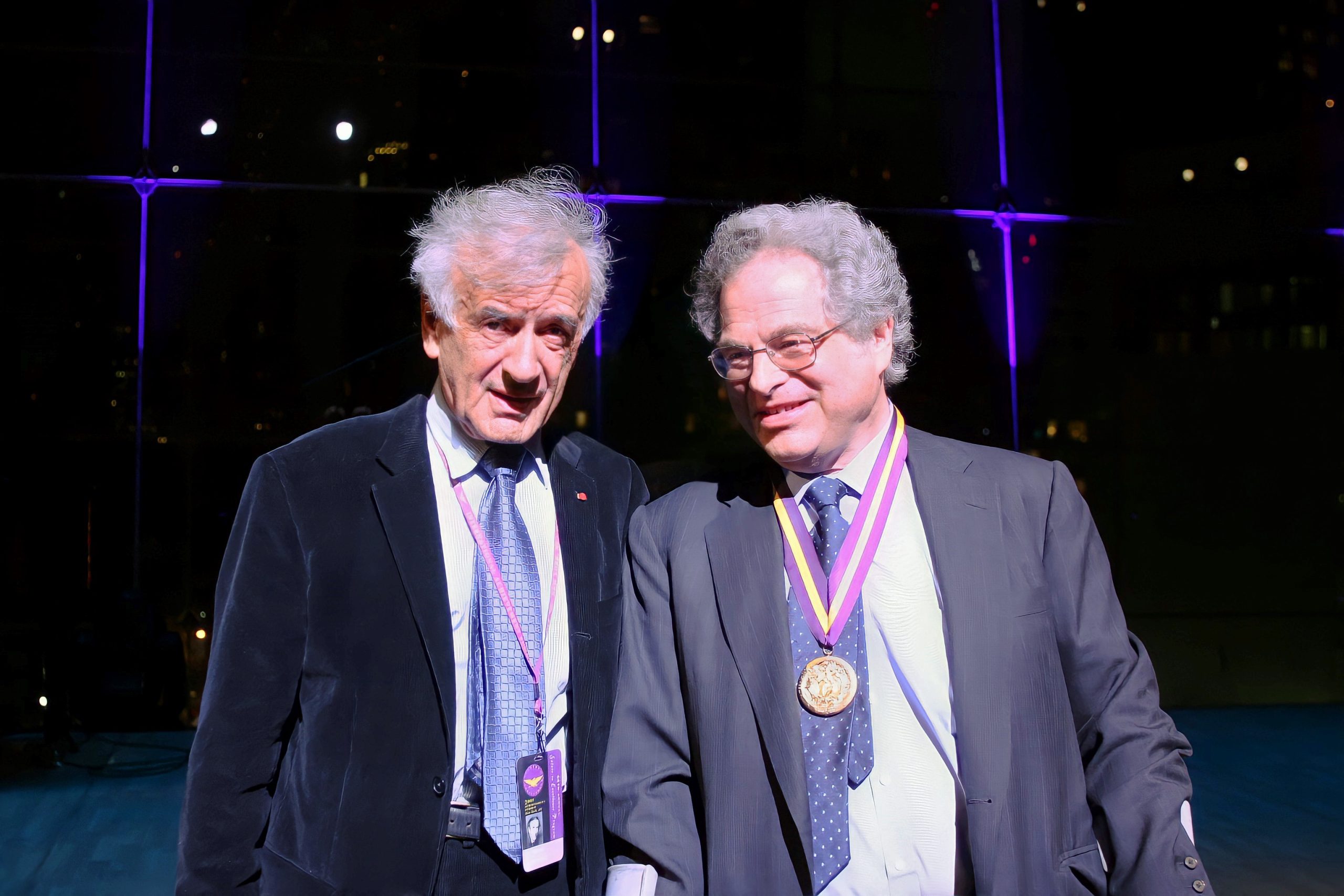
As a boy in Tel Aviv, Perlman had dreamed of playing with the Israel Philharmonic Orchestra (IPO). Playing with the orchestra, at last, was one of the gratifying experiences of his early career. In 1987, he joined the orchestra for its historic concerts in Warsaw and Budapest, the orchestra’s first visit to the Soviet-dominated Eastern Bloc. Traveling and performing conditions in the East were less luxurious than those of North America and Western Europe, but the audiences welcomed Perlman and the IPO with rapturous enthusiasm. The musicians were greeted even more warmly when they played in Russia itself in the spring of 1990. Perlman and the IPO’s performances in Moscow and Leningrad were documented in an Emmy Award-winning television special. Perlman also appeared in Russia that year for the 150th anniversary celebration of the birth of Tchaikovsky. Perlman and the IPO continued to blaze new trails with a tour of China and India in 1994.

In 1995, he won his 15th Grammy for The American Album, featuring works by American composers Samuel Barber, Lukas Foss, and Leonard Bernstein. In that year, he also released In the Fiddler’s House, a recording of klezmer, the traditional popular music of the Jews of Eastern Europe. In his travels, he had made contact with practitioners of the style in its historic homeland. The 1995 television special In the Fiddler’s House, filmed in Poland, featured Perlman performing with leading klezmer bands and brought him a third Emmy Award. He had won another the previous year for Outstanding Individual Achievement in Cultural Programming. In addition to klezmer, Perlman enjoyed explorations of jazz, recording jazz standards with pianist Oscar Peterson, and a series of new jazz-inflected compositions with the composer, conductor and pianist Andre Previn. Itzhak Perlman has also been heard in a number of motion pictures, most memorably playing the solo violin part in John Williams’s Oscar-winning score for the Steven Spielberg film Schindler’s List.

In 1995, Toby Friedlander Perlman founded the Perlman Music Program as a summer camp on Long Island for exceptional young string musicians between the ages of 11 and 18. It has since evolved into a yearlong program, with Itzhak Perlman as an enthusiastic participant, coaching the students before public performances. By requiring the students to practice together, the Perlman Program enables young musicians to develop a support network of friends and colleagues. Perlman’s work with students has been documented in the television special Fiddling for the Future. The program captured a fourth Emmy Award for Perlman.
At the turn of the 21st century, Perlman — now widely recognized as the world’s preeminent classical violinist — initiated a second career as a conductor. He has since appeared as a guest conductor with most of the leading American orchestras — including the New York Philharmonic and the orchestras of Boston, Chicago, Philadelphia, and Los Angeles — and with many of the major European ones, including Amsterdam’s Concertgebouw Orchestra and the Berlin Philharmonic, as well as the Israel Philharmonic.
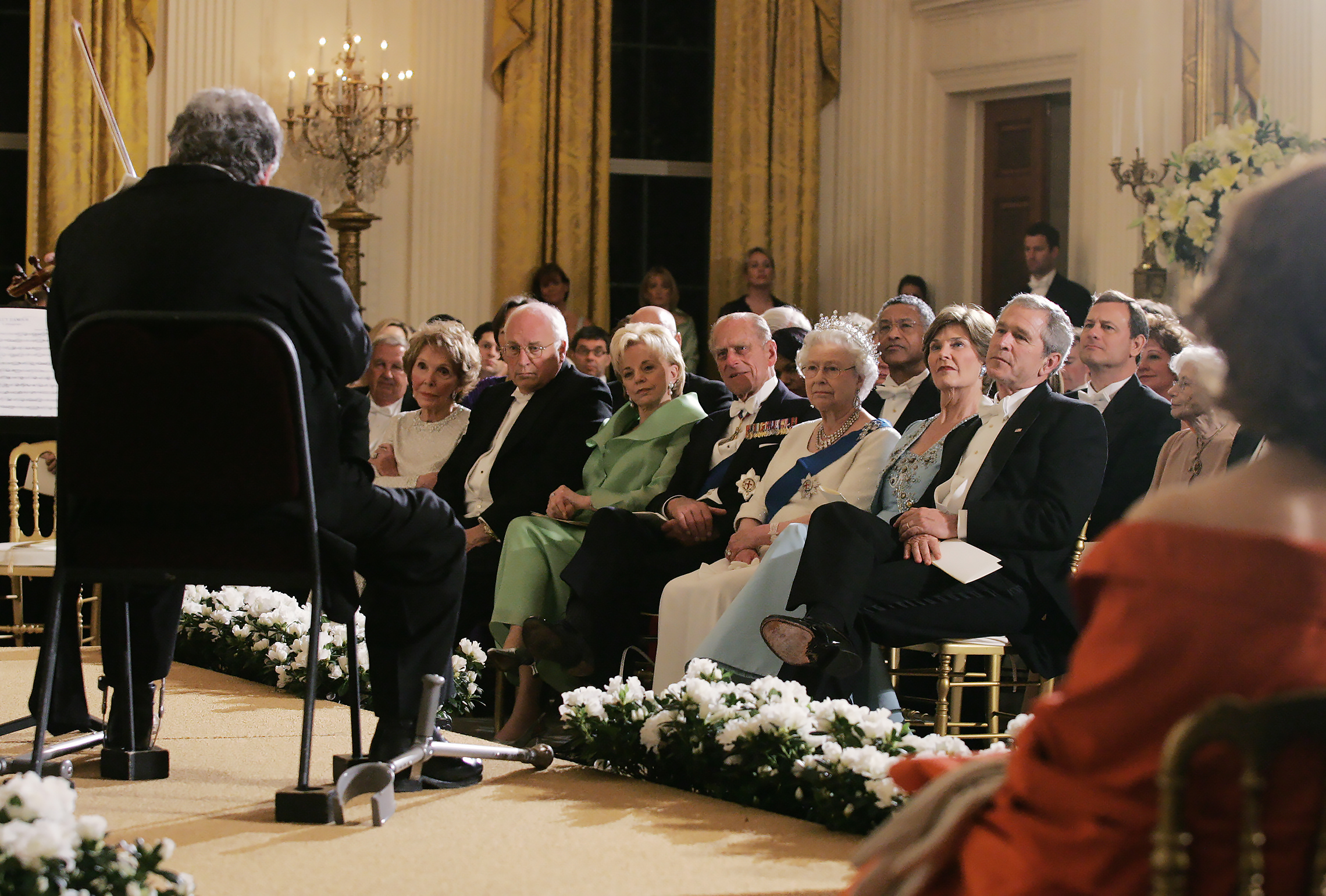
Perlman has been honored repeatedly by his adopted country. President Clinton awarded him the National Medal of Arts in 2000. In 2003, he received the Kennedy Center Honors. That same year, he succeeded his former teacher, Dorothy DeLay, as Starling Foundation Chair in Violin Studies at Juilliard. In 2004, the record label EMI released The Perlman Edition, a limited edition, 15-CD box set of his greatest recordings for the label. A 2004 television special, Perlman in Shanghai, recorded his visit to China with the Perlman Music Program. This visit culminated in a concert where Perlman led 1,000 young violinists in a live performance broadcast all over China.
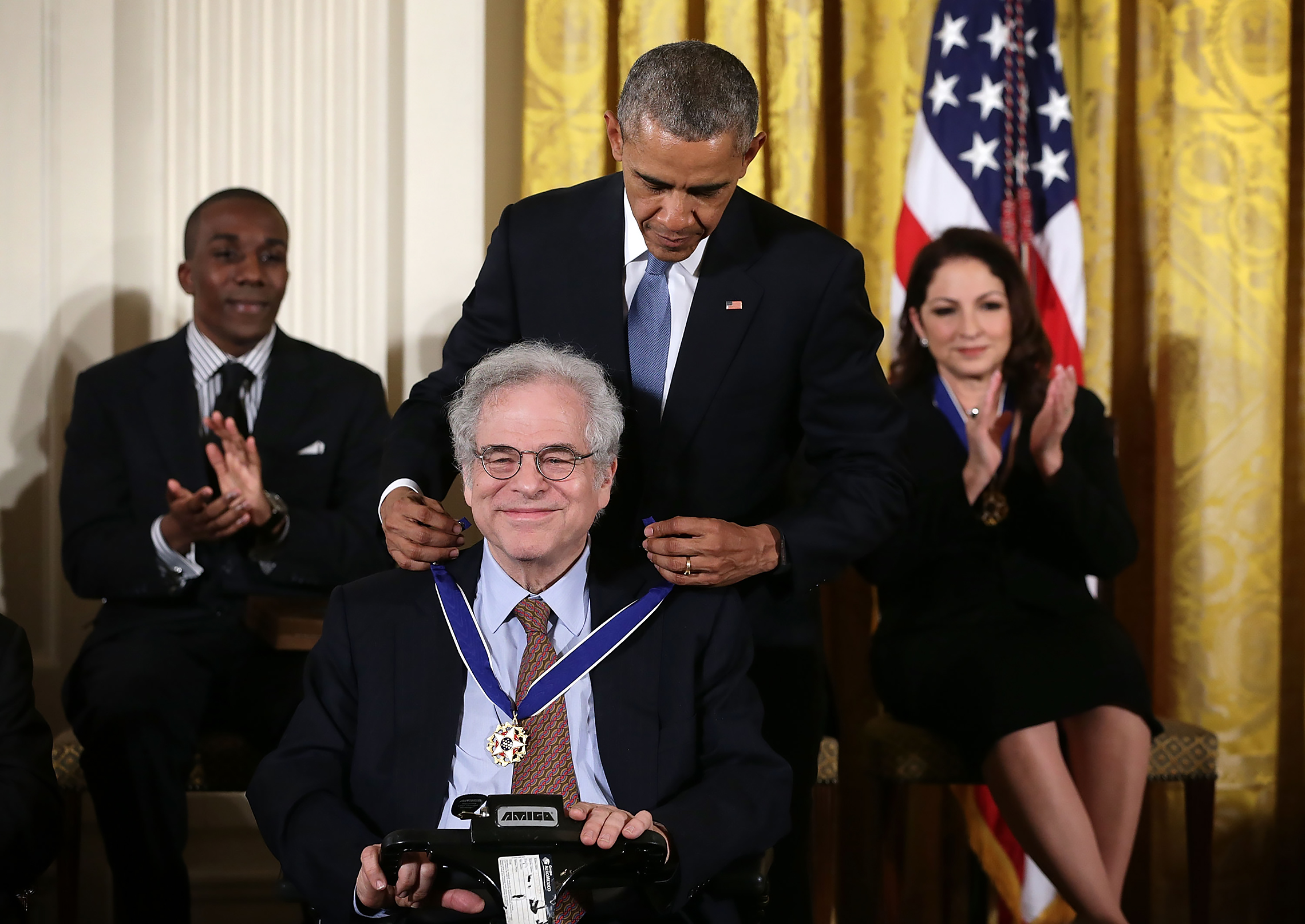
Nearly half a century after his arrival in the United States, Itzhak Perlman had become a national institution in his own right and familiar presence at important state occasions. In 2007, he performed at the White House for a State Dinner in honor of Britain’s Queen Elizabeth II. The recording industry recognized his entire career with the Grammy for Lifetime Achievement in 2008. The following year, he performed at the inauguration of President Barack Obama. In 2015, President Obama presented Itzhak Perlman with the Presidential Medal of Freedom. The following year, Perlman was honored by the country of his birth with the Genesis Prize of Israel. In 2017, he was the subject of a feature-length documentary film, Itzhak.
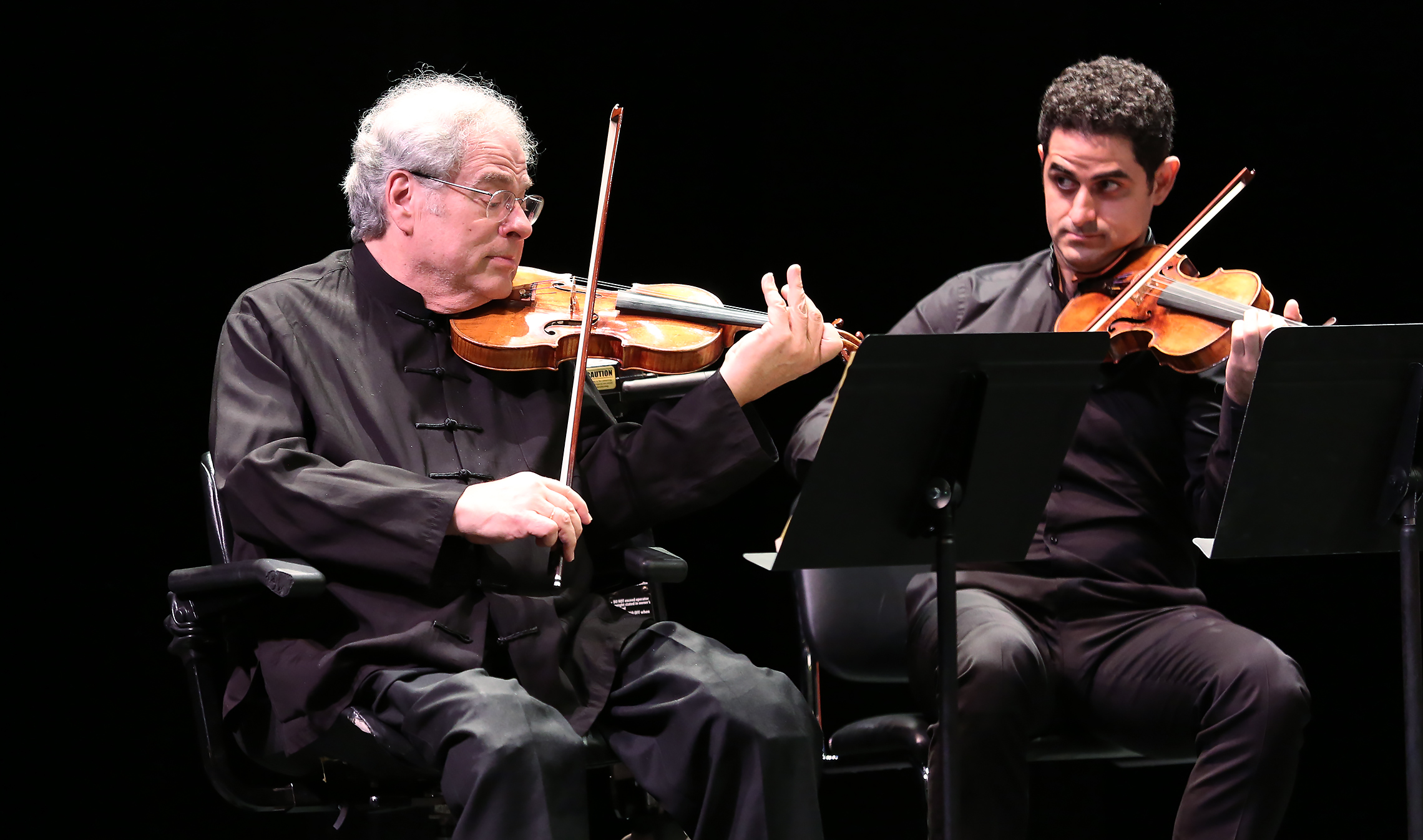
Today, Itzhak Perlman continues to perform, record and teach. Throughout his career, he has made his way to the world’s great concert stages while coping with travel arrangements and performance venues that are barely accessible to a person on crutches or in a wheelchair. By his example and his advocacy, he has worked to achieve full accessibility for the disabled to all public places. Itzhak and Toby Perlman live in New York City, where they have raised four children.

The world’s greatest living violinist, Itzhak Perlman, has become the most recognized classical musician in the world. As a global ambassador of music, he has won the hearts of audiences in America, Europe, and Asia, which are as moved by his character, his warmth, and his passion for music as they are dazzled by the virtuosity of his playing and the depth and insight of his interpretation.
Born in Israel, where he received his initial musical training, he came to America at age 13 to appear on The Ed Sullivan Show in 1958. Since then, he has appeared with every major orchestra and in recitals around the world. His recordings regularly appear on the best-seller charts and have garnered 15 Grammy Awards.
Through his frequent appearances on television, Mr. Perlman has entertained an audience in the millions. He has been honored with four Emmy Awards for programs showcasing his educational efforts with the Perlman Music Program and his music-making visits to Russia, Poland, and China. During the past ten years, Mr. Perlman has embarked on a second career as a conductor, leading the world’s greatest orchestras. Stricken with polio as a child, his personal courage in overcoming his disability has inspired millions. Wherever he goes, he has employed his influence and his renown to achieve equal access for the disabled.
How did you first come to play the violin? Why the violin?
Itzhak Perlman: I started the violin when I was four. I liked the sound of it, so that’s why I chose it. That’s why I said to my parents, “I want to play this instrument.” And then you start to get reaction from people: “Is he talented? Does he have a gift?” And so on and so forth. I was always into sound. I had a good concept of sound on the violin. I heard it in my head. So people always say, “Oh, he has a very nice sound.” And one thing leads to another, and you develop, you study. I studied with one teacher, actually, in Israel. I studied with a teacher who had a Russian background. I studied with her. She’s the only one that I studied with. We studied at the age of five, and she taught me until I was 13, and that’s when I came to the States. So one thing leads to another and then says, “Well, you know, he’s pretty talented.” And so on. So it’s not like I woke up one morning and said, “That’s what I want to do,” you know. It’s a gradual thing.
How did The Ed Sullivan Show change your life? Were you already headed for a career as a concert artist?
Itzhak Perlman: I was talented and played the violin, but people didn’t really take it very seriously because of my polio — because I had polio when I was four. And so I was sitting down, and I was playing, and people always said, “Well, you know, I don’t know if you’re going to have a career…” blah, blah, blah. They didn’t take it seriously. And so for me to go to the United States — I would say that in every little country, after a while, you go abroad to complete your studies. We have this Hebrew word that says le-hishtalmut, which means “to complete; completion.” And I wasn’t having any success.
People around me, where I was studying, would say, “Oh, well, you know…“ So he was my ticket to the United States, Ed Sullivan.
Living in Israel, how did you come to be on this American television program — two, three — how many times?
Itzhak Perlman: I was on The Ed Sullivan Show twice, sort of — three times when I was 13 and three times when I was 18. I’ll just give you a very quick history about this. Ed Sullivan, in 1958, came to Israel because he wanted to have a show made only of Israeli artists — Israeli acts — because with Ed Sullivan, you know, Ed Sullivan was a true variety program. That’s why I said “acts,” because it’s, like, anything went. So he wanted to do it just from Israeli artists. So there were national auditions. Everybody would audition, you know: “We want to be on The Ed Sullivan Show.” People would audition anybody that did anything, whether they were musicians or dancers or singers or comedians, whatever it is. Then it was narrowed down to a few, and then he came himself to Israel for the final choosing, so I was one of the people that were chosen to be on the show.
Were you scared as a 13-year-old, traveling so far from home and being on this big TV show?
Itzhak Perlman: I was looking forward to coming to the States. I took some English in school, the first time. And my English — there was no English! And there was an English book, I remember, and there was a picture of the Empire State Building in the textbook, and I said, “One of these days I’m going to be there.” So it was my dream to go to the States, so I was very, very — I loved the idea to have a chance to go to the States.
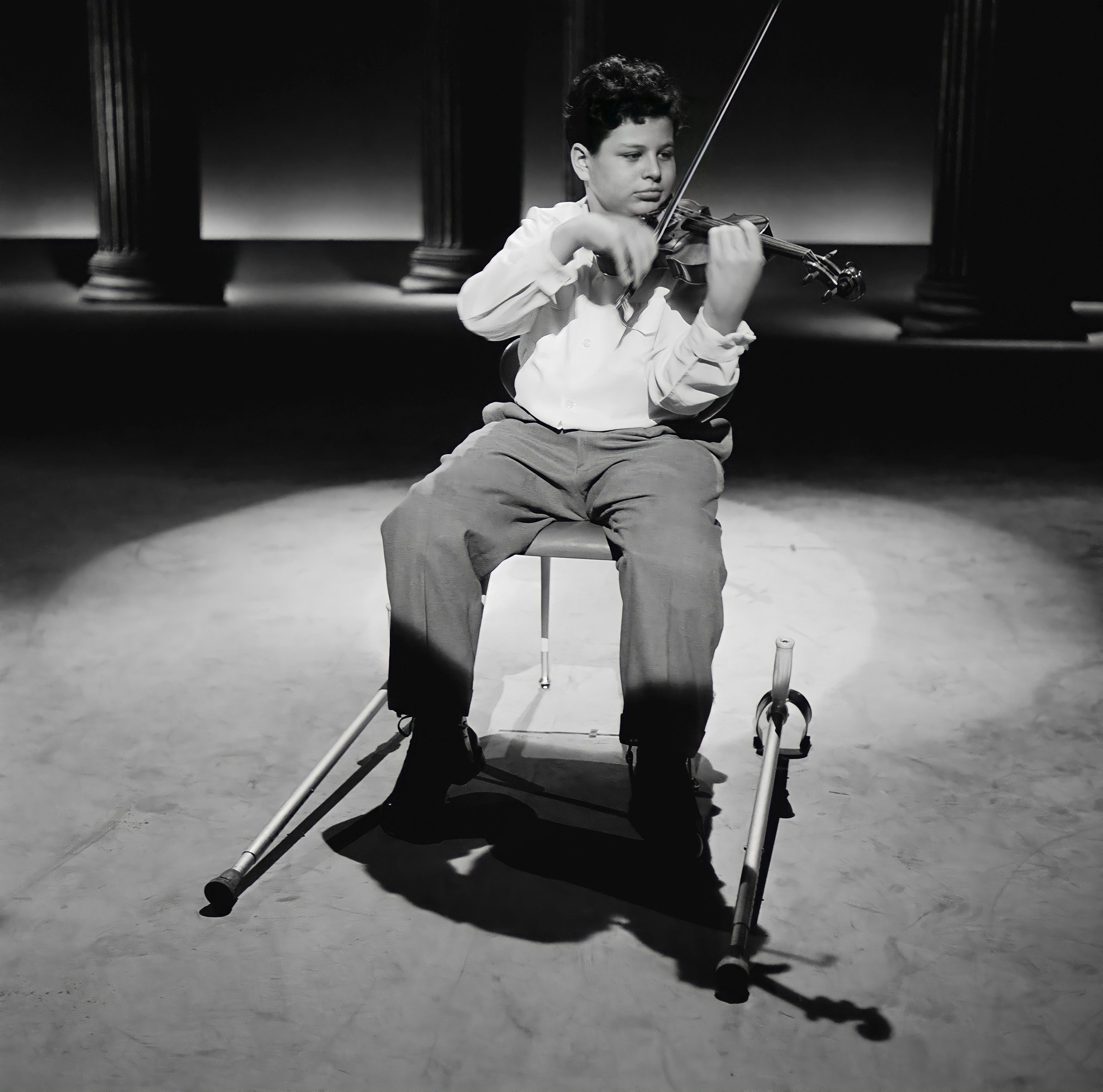
You studied here at Juilliard, where we’re doing this interview, with Dorothy DeLay, and she wrote this about you when you were a very young teenager: “I had never seen such fingers on a 13-year-old. The development of skill was so far beyond that of any other child, it was just startling. He had large hands, a fluent arm, exceptional coordination, and superb timing. I could not believe my ears.”
Itzhak Perlman: I guess she liked it!
How helpful were Dorothy DeLay and your other teachers?
Itzhak Perlman: It’s very funny because this is the room that she taught in, where we are right now. That’s her studio. Well, let me give you the very, very short history of the way I studied. My first teacher, as I mentioned before, was a lady. Her name was Rivka Goldgart. She was Russian background, and she was basically a taskmaster. She was very good. She knew certain things, but it was one of those things where you’d better practice or else. It was one of those things, and: “If you don’t sound good, I’ll tell you what to do, and you do it.” Then I came to the States, and I studied with Dorothy DeLay and with Ivan Galamian. So at that time, actually, it was very interesting. I heard about Galamian when I was still in Israel, and then when the Ed Sullivan situation arose, that was my way of going to Juilliard and studying with Galamian because that was the guy. But at that time, Dorothy DeLay was his assistant. So she came when, I remember, I was in the hotel downtown and the first hotel was very depressing. It was one of those hotels where you open the door and you could touch the window. That’s how big the room was!
I was not very happy because I was missing my father because I came here only with my mother, and then my father joined us later. And I was missing my friends — I had friends in school and stuff. So I was alone, and I didn’t speak the language, so I was not in a great mood. Ms. DeLay came in, and she said something in English, and I couldn’t understand what she was talking about, and I just played. And then we started. So she was the first one to teach me, and then Galamian joined a few months later. Her system was different than anything that I had experienced before. The way that she would teach would be you would play something and she would ask you what you thought about it. She would ask you what I think can be done to maybe improve it or what I think. In other words, she — and I would always hate it because I wasn’t used to it. I was used to people telling me what to do, and I would try and do it. She didn’t tell me what to do. She asked me what should I do, and I always said to her, “Just tell me.” My favorite example is when something was out of tune, she would say, “Sugarplum…“ She would always call you “Sugarplum.” She was from Kansas, you know. She said, “Sugarplum, what is your concept of G sharp?” That was a code word that it was a little out of tune, and I would always say, “Just tell me what to do, and I’ll do it.” She wouldn’t do that. She would do things to make you think.
How was that helpful to your music?
Itzhak Perlman: Right now it’s very funny because, after hating it so much, that’s the way I teach.
Why?
Itzhak Perlman: Because it works better with the student. The student, just following orders, in some ways is not as imaginative. In other words, the concept does not require so much imagination. It does not require a lot of thought. It just requires following orders. That does not make it your own. If you actually figure out what the problems are — whether it’s phrasing, whether it’s intonation, whether it’s timing, whatever it is — if you can figure it out yourself, then you own it.
Is it really true that you were only three years old and you could recite arias after hearing them on the radio?
Itzhak Perlman: I imitated what I heard. Yeah, I imitated what I heard. The thing is that — one of the things that I feel that I’m very lucky — two things, actually, maybe a few more. First of all, I’m lucky that I make a living at something that I love, which actually should be the goal of everybody. If you can make a living with something that you really adore, what better things can happen if you can do that? That’s one thing. The other thing is that I’m actually able to cry when I hear certain kinds of music, and I think that’s amazing that I’m affected by that, you know. And it’s something — it’s me, you know. So if I hear something on the radio, and I say, “Oh, my God!”
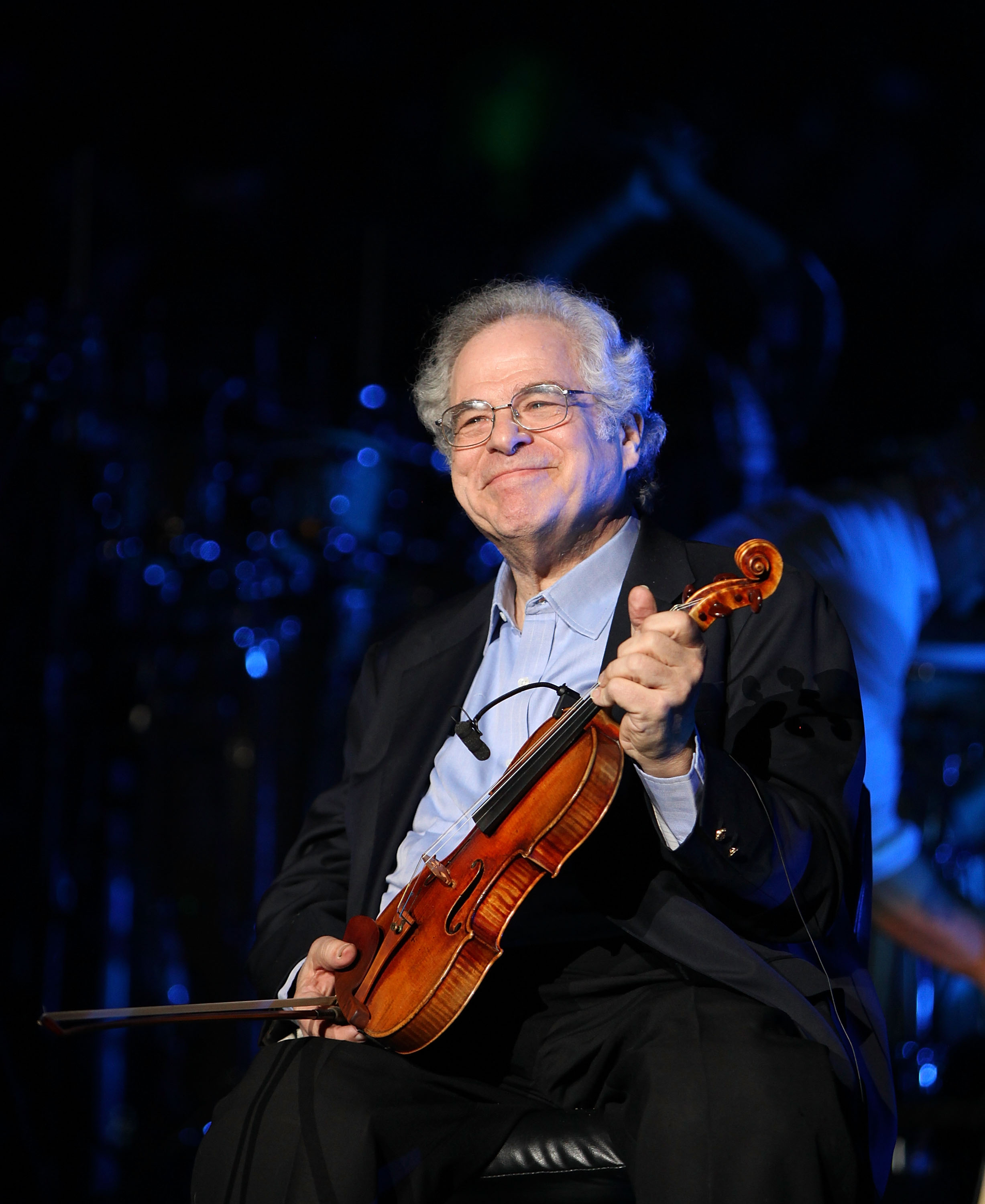
Could you tell us a piece of music that might make you cry?
Itzhak Perlman: A recording that I hate! A recording that I think is me and I hate it — oh, I’ll cry! “Did I record this?” Sometimes I’ll listen on the radio, and I hear a violinist playing, and I say, “Oh, my God, I hope it’s not me because if it’s me, I wouldn’t do it like that today.” Or you can say, “It better be me because it’s too good!” So it’s always something. What makes me cry?
I remember my first experience, I suppose, that made me cry is chamber music by Brahms. The opening of Mozart’s Requiem — that is just like, forget about it! And it’s not a tear-jerker. It’s just — it moves you. It moves you in a certain way. And then people ask, “Why?” And I can’t understand. I think that if you want to really be specific, and you want to be really accurate as to what is scientific about it, it’s probably a thing about harmonies, that the harmonies affect you in a certain way. That’s why I believe that not everybody cries in the same spot. It’s a harmonic reaction, so that’s very scientific. It’s not like you say, “Oh, well, just that music moves you.” No. When you listen, for example, to Puccini, La Bohème, that’s kind of automatic. They almost call it musical pornography because it makes you, “Oh, my God!” But what is that, really? It’s basically, really, it’s the way the composer put the harmonies together, and I think that has an effect.
Is there a piece of music that you’ve played more than any other?
Itzhak Perlman: Probably, but I wouldn’t know. I mean I would probably say any of the big violin concertos and, you know — and Beethoven, Brahms, Tchaikovsky, and so on. Those are the ones that people want all the time, so I would say that.
Can you still get emotionally involved in these pieces after thousands of times?
Itzhak Perlman: That’s a very good question. That’s one of the great challenges for a performing musician. That’s what I talk about to my students.
You know, it’s very easy to play a piece for the first time because you’re excited. You’re a little nervous. You get inspired. Then the second time comes, and you feel a little better about it because you know that you can do it. And then the third time, it may be, “Well, how do I play that piece? Well, I play that piece like yesterday.” And then the fourth time, who knows? And then, after a while, the danger is to play the piece “the way it goes,” and that’s where the mistake is. I mean there’s no such thing as “the way it goes.” You don’t play a piece “the way it goes.” You play a piece the way it is, and “the way it goes” is a danger because then, as a result, what happens is you imitate what you do, and it loses the spontaneity.
I basically always, always listen to the music rather than just saying, “Well, you know, I play this phrase this way, and that’s the way I play it.” That’s not necessarily the case, you know. I may play the phrase slightly differently, and again, it’s not a question of “Today I’m playing loud; tomorrow I’m playing soft.” It’s not like that. It’s very subtle, and I always call it — it’s our kind of improvisation. Because when people play jazz, they improvise, but when they improvise, they really improvise. They play different notes. They play different harmonies, and they do certain things, and if you hear a piece one time, you hear the same piece a second time, it’s really different. With classical musicians, the improvisation is very subtle. You hear it the first time, it’s like this. You hear it the second time, it has maybe a freshness, and that’s a little bit of an improvisation, but it’s very subtle. It’s about timing. It’s about phrasing. It’s about color, but it’s not about, necessarily — it’s not about notes. The notes are the same. So in many ways, to improvise that way in classical music is very difficult.
What do we mean when we speak of “color” in music?
Itzhak Perlman: Color has to do with a lot of things. Again, people with talent know how to do color. Now if you want me to talk to you about the technical aspect of color, it has to do with bow pressure. It has to do with bow speed. It has to do with the amount of vibrato that you use in the left hand. It has to do with: “Do you use more vibrato? Do you use less vibrato? What’s the combination?” But these are very scientific kinds of things. Color kind of is another thing. Color can — when people are inspired, they use color and, of course, color is a talent. Can you teach that? I don’t think so. You can say, “Well, he should play softer. He should play more…” But when it comes to naturally doing something, that’s a talent. I always mention to my students — I always say, “I don’t want to know what you’re doing.” In other words, the minute I know what you’re doing, then it’s not spontaneous. Like if I said, “Oh, here they’re going to do — they’re going to slow down here. They’re going to play softer here. They’re going to play…“ It becomes an affect. I want you to be a magician. Not a musician, a magician. What does a magician do? It does something that’s sleight of hand and you see it. It’s the same thing with music. You have to be a magician so that when the listener listens, the listener says, “Oh, my God. This is so amazing,” rather than saying, “Well, I like the way he did this, and I like the way he did…” That’s no longer spontaneous. I just want to relax. Of course, as a teacher, if somebody asks me, “What made it so good?” I can kind of go into it under a magnifying glass and say, “Well, it was this way, it was that way.” But as a listener, I just want to say, “Oh, that was so fresh. That was so nice. I just loved it.” I don’t want to ask any questions. And that’s a talent.
Can you tell us what it’s like to be on the stage at Carnegie Hall or some other great concert venue? What does it feel like when you move the audience?
Itzhak Perlman: All I do is my job. My job is to tell the audience what is my concept of the piece that I’m playing. Listen to what I’m playing, and this is the way I feel about that piece. And that, hopefully, communicates to the audience. It’s my job. So my job is not to play something and to say, “Well, you can listen in if you want. I’m doing my own thing.” I’m doing this, and I’m presenting this for the audience. So whenever I play a piece, this is my representation of the piece. And I hope that the audience understands the way I feel about it. That’s the way I do it. And that has nothing to do with whether it’s Carnegie Hall or whether it’s in a small place. Any place, whenever I play — whether it’s in a big place or a small place or a small town, big town, et cetera, et cetera — I have to communicate with the audience.
You have a lot of performances and a lot of music ahead of you, but when you come to the end of your career, what do you hope your contribution to music will have been?
Itzhak Perlman: God. Well, I hope that with recordings, I hope that people can sort of listen and enjoy it. Personally — I always say that, but I’ll repeat it — I hope I never get bored with music. Right now, because of my teaching and my playing and my conducting, I have a lot of stuff that still is fresh for me and new to me, and one thing helps the other. So I’m not thinking about what my effect would be. I don’t think about it. I’m being very selfish. I think about, “How am I going to continue to have a good time in music and to be still inspired by music?” As long as I can do that, then my goal is accomplished.
Is it really true that after your wife-to-be heard you play for the first time, she walked up to you, and said…
Itzhak Perlman: She said, “Will you marry me?” Yeah, it’s true. It’s totally true.
What did you think?
Itzhak Perlman: I was flabbergasted. I was 17! But that’s how we met. It’s a true story.
Can you remember a specific performance — a debut or a special concert — that was particularly meaningful to you?
Itzhak Perlman: One of my dreams was to play with the Israel Philharmonic because growing up in Israel, the dream is — if you are a musician — is to play with the Israel Philharmonic. So I would say that probably was very memorable to me. And it was very funny because it’s a good story. They introduced — they took out a copy of a letter that I wrote when I was 11 years old, and I wanted to play with the Israel Philharmonic. And I wrote a letter to the Philharmonic, saying, “I hereby request an audition to play with the orchestra.” I wrote it all myself in pen and so on — “Sincerely yours” — and they never answered. And then they showed it to me because they kept it. So when I played with them, then that was like a dream come true for me as a youngster.

